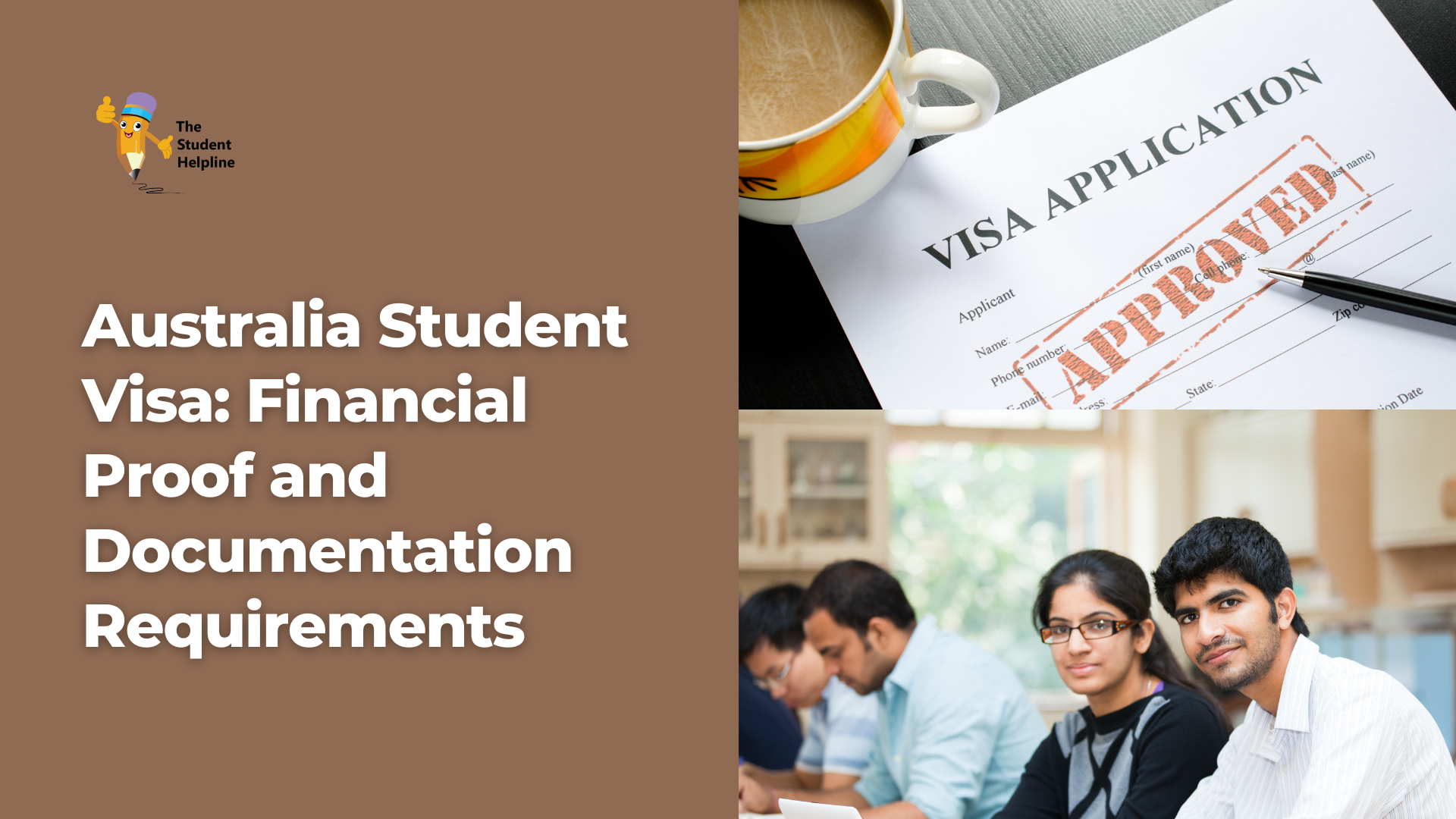Australia is a leading destination for international education, attracting students worldwide due to its top-ranked universities and vibrant culture. For those planning to study in Australia, obtaining an Australia study visa is a crucial step. One of the most important aspects of the visa process is providing financial proof and the necessary documentation. This guide explores the detailed requirements and offers insights to help students prepare for a successful visa application.
Understanding the Australia Student Visa (Subclass 500)
The Subclass 500 Student Visa is mandatory for international students who wish to enroll in full-time courses in Australia. This visa allows students to stay in the country for the duration of their studies, with the possibility of part-time work rights.
Key Benefits of Subclass 500
- Allows enrollment in registered courses in Australia.
- Grants work rights for up to 20 hours per week during the academic term.
- Provides access to Australia’s public healthcare system for students and their dependents.
One major component of the visa application is demonstrating financial capability to cover tuition fees, living expenses, and travel costs.
Why Financial Proof Is Required for an Australia Study Visa
The Australian government requires proof of financial capacity to ensure that students and their dependents can support themselves during their stay without relying on external assistance.
Purpose of Financial Proof
- To confirm the applicant’s ability to pay tuition fees.
- To ensure sufficient funds for living expenses and accommodation.
- To cover travel costs to and from Australia.
Demonstrating financial stability also assures the government that students can focus on their studies without financial difficulties.
Financial Requirements for an Australia Study Visa
1. Tuition Fees
Applicants must show evidence of funds to cover at least the first year of tuition fees. The amount varies depending on the course and institution.
2. Living Expenses
As of the latest guidelines, international students must demonstrate access to a minimum annual living expense amount:
- Student: AUD 21,041
- Spouse/Partner: AUD 7,362
- Child (if applicable): AUD 3,152
3. Travel Costs
Students must account for return airfare costs. Approximate figures include:
- Travel to/from Australia: AUD 2,000
4. Schooling for Dependents
If the student plans to bring dependents, additional funds for their education (if applicable) must be demonstrated. The estimated cost is around AUD 8,000 per year for each dependent child attending school.
Acceptable Sources of Financial Proof
The Australian Department of Home Affairs accepts various sources for demonstrating financial capacity. Applicants can use one or a combination of these methods:
1. Personal Funds
- Bank account statements showing sufficient balance.
- Fixed deposits or term deposits.
2. Education Loans
- Proof of approved loans from recognized financial institutions.
- Loan sanction letters clearly stating the amount and disbursement terms.
3. Sponsorship
- Financial proof from a sponsor (parent, guardian, or close relative).
- The sponsor must provide bank statements, income tax returns, and a written affidavit confirming their commitment.
4. Scholarships
- Evidence of scholarships, grants, or financial aid awarded by governments or institutions.
5. Annual Income of Sponsor or Applicant
- If demonstrating financial capacity through income, the annual income must be at least AUD 62,222 (or AUD 72,592 if dependents are included).
- Income proof must be verified through official documents such as tax returns or salary slips.
Documentation Required for Financial Proof
Accurate and authentic documentation is essential to avoid visa delays or refusals. Below is a checklist of the required documents:
1. Bank Statements
- Recent bank statements showing sufficient balance (typically 3–6 months).
- Ensure the statements are stamped and signed by the issuing bank.
2. Education Loan Approval Letters
- Loan sanction letters specifying the amount approved, interest rate, and repayment terms.
- Ensure the letter is issued by a recognized financial institution.
3. Affidavit of Support
- A legally notarized document from sponsors, confirming their financial commitment.
- Include details of the relationship between the sponsor and the student.
4. Proof of Scholarship
- Scholarship award letters clearly stating the coverage of tuition fees and/or living expenses.
5. Proof of Income
- Tax returns, payslips, or other documents verifying the income of the applicant or sponsor.
6. Travel Documents
- Proof of funds allocated for airfare, such as a booked ticket or estimated travel expenses.
Common Challenges with Financial Proof
1. Insufficient Documentation
Failure to provide all required documents is a common reason for visa rejections. Students must double-check their submissions for completeness.
2. Unverified Sources of Income
Income from unverified sources or unclear financial arrangements can lead to doubts about financial stability. Use official, traceable documentation only.
3. Over-Reliance on Third-Party Sponsors
While sponsorship is allowed, applicants must ensure their sponsors’ financial capability is well-documented and reliable.
4. Fluctuating Bank Balances
A stable financial history is critical. Sudden large deposits without a clear source can raise red flags during the visa assessment process.
Tips for Successful Financial Documentation Submission
- Plan Ahead
- Start gathering financial documents early to avoid last-minute issues.
- Keep bank accounts and financial records organized.
- Seek Guidance
- Consulting with a study abroad consultant can help ensure compliance with Australian visa guidelines.
- Provide Authentic Documents
- Submit only genuine and verifiable documents. False information can lead to visa rejection or bans.
- Highlight Stability
- Maintain consistent bank balances and provide a clear explanation for any large transactions.
- Use Multiple Proof Sources
- Combine personal funds, loans, and scholarships to present a comprehensive financial plan.
Importance of Financial Planning for Study in Australia
Study in Australia is a significant investment, and demonstrating financial readiness not only supports the visa process but also ensures a smoother academic journey. Proper financial planning allows students to focus on their studies without constant worry about expenses.



